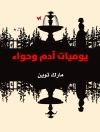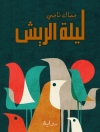In her enchanting tale ‘Christmas-Tree Land, ‘ Mary Louisa Molesworth masterfully weaves a narrative that captures the innocence and magic of childhood during the festive season. The book, published in the late 19th century, exhibits Molesworth’s signature literary style characterized by vivid imagery, whimsical characters, and a rich, descriptive prose. Set against a backdrop of wintry landscapes and the transformative spirit of Christmas, the story follows young protagonists as they embark on a fantastical adventure, exploring themes of joy, imagination, and the importance of sharing. The narrative resonates with the Victorian era’s fascination with the supernatural and the idealization of childhood, echoing the sentiments of contemporary authors like Lewis Carroll and Edith Nesbit. Mary Louisa Molesworth, a prominent author of children’s literature, was deeply influenced by the cultural and social dynamics of her time, where Christmas traditions were evolving. Her experiences as a mother and her keen observations of children’s behavior enriched her storytelling, allowing her to connect with young readers on multiple emotional levels. Molesworth’s work reflects her pioneering spirit in championing children’s literature, making her an essential figure in the genre’s development. ‘Christmas-Tree Land’ is highly recommended for readers who appreciate heartwarming narratives filled with wonder and nostalgia. It serves not only as a delightful holiday read for children but also as a poignant reminder of the enduring spirit of Christmas that unites generations.
About the author
Mary Louisa Molesworth, nee Stewart (29 May 1839 – 20 January 1921), was an English writer of children’s stories who embodied the spirit of the Victorian era through her numerous works. Renowned for her charm, wit, and ability to depict realistic, sympathetic child characters, Molesworth was known to her readers as Mrs. Molesworth, the name under which most of her fiction was published. A prolific author, she wrote family and children’s books that were much admired throughout the late 19th and early 20th centuries. ‘Christmas-Tree Land’ is among her memorable tomes, a classic tale that encapsulates her genteel prose and enchanting narrative style. Her literary output regularly featured themes of domestic life, moral conduct, and the fantastical elements that often resonate within children’s literature. Molesworth’s contribution to children’s fiction was considerable, often compared to that of her contemporaries such as Lewis Carroll and Louisa May Alcott. Her stories were characterized by a mix of realism and fantasy, advocating the virtues of kindness and unselfishness while delighting young audiences with magical elements. Her legacy, while somewhat overshadowed after her death, has seen a revival of interest in the early 21st century, recognizing her pivotal role in defining the genre of English children’s literature.












